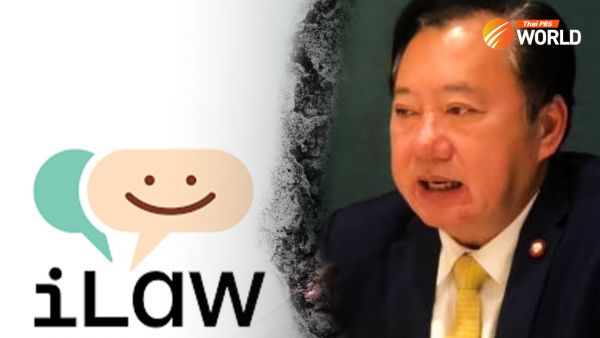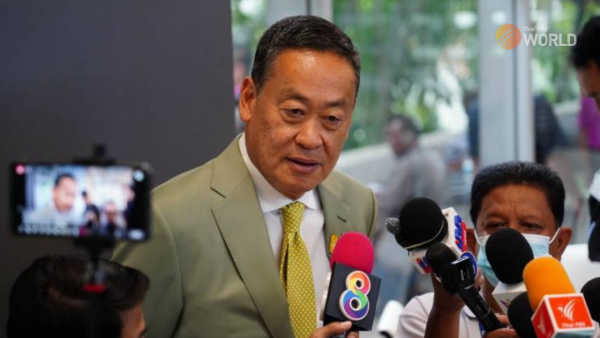Romance of the Three Kingdoms Part II

If Thailand’s Romance of the Three Kingdoms Part I ended with the formation of the Srettha government, the evolving Part II is about how to maintain the shaky alliance and pull off a big trick to make the isolated enemy remain scary but not so threatening.
After the general election last May, all Pheu Thai wanted was to lead to a coalition government and all the conservatives needed was to get Move Forward out of the way. The common need to neutralise the election winner was strong.
Now, a few things have changed, some obviously and others presumably. Starting with the conservatives, their concern about Move Forward is being weighed more and more against the sights of Cambodia pampering the Shinawatras, Pheu Thai controlling every key national affair and policies they once balked at progressing almost inexorably.
As for Move Forward, the likelihood of a reunion with Pheu Thai is shrinking with each passing day. It’s next to impossible now.
That virtually means that, in order to win political power, the biggest party will need to triumph in the next general election by a landslide big enough to rule by its own.
Of all the three kingdoms, Pheu Thai is in the most complicated situation, requiring the trickiest of balancing acts. On the one hand, it wants Move Forward to keep scaring the conservatives for its own sake. On the other hand, the scarier Move Forward is, the smaller Pheu Thai’s electoral base can become.
Pheu Thai, deep down, will not want Move Forward to get dissolved. It knows full well how party dissolution can draw a groundswell of public sympathy. It also knows that, in proxy politics, popular individuals are not as important.
Yingluck Shinawatra was virtually unknown when her big brother was a political star. Thanathorn Juangroongruangkit was replaced by Pita Limjaroenrat just as comfortably.
Pheu Thai will want Move Forward to remain “scary”, but just enough to keep the conservatives worried so the fragile alliance will lumber on. Move Forward swept aside Pheu Thai even before it was clear the latter would join the conservatives, so what can possibly happen next is a no-brainer.
Electorally speaking, Pheu Thai is in greater danger than the other two “kingdoms”. Both the conservatives and Move Forward have their unchangeable fans, but the second biggest party’s fan base is epitomized by how people in Chiang Mai received Thaksin Shinawatra a few days ago.
Prime Minister Srettha Thavisin, meanwhile, has largely failed to impress in his first few months, thus making Pheu Thai’s electoral task all the more harder.
So far, he has meekly defended digital wallet, which is his party’s flagship policy, scored poorly on enormous and pressing police problems, and appeared almost too timid before Thaksin the convict, raising questions about his charisma and genuine clout in the process.
And, love it or hate it, the Prayut government seemed to have more cohesion than Srettha’s.
Once a big part of the love-hate triangle, the Democrats will be hoping to regain something and improve their bit-player status. At a censure debate, for example, they can outshine Move Forward when it comes to Thaksin, whose political and legal treatment is presenting the biggest party with a major dilemma.
Numerically, Pheu Thai and the conservatives still need each other in the next election, assuming Pheu Thai is not stunted too much. Their combined popular votes last year surpassed those of Move Forward by a few millions, but, without an upheaval, there is no way they can compete separately against the biggest party in the next election.
Is there any chance of a Pheu Thai-Move Forward reunion? While that was highly-possible in old-fashion politics, Move Forward has thrived primarily on unorthodoxy, so much so that flip-flopping on political alliance could backfire uncontrollably.
That’s just one of the problems. Another big one is the one that prompted the Pheu Thai about-turn in the first place. Pheu Thai would never play the second fiddle in a government.
The only way to see a Pheu Thai-Move Forward coalition after the next election is for the former to oversee the likes of the Finance Ministry, an unthinkable scenario if the next election ends with another victory of the latter.
The two parties will be competing to rule. The reasoning that the two biggest political parties should govern together a country together because that’s what its majority wants will go out the window.
Actually, though, Thailand’s Romance of the Three Kingdoms Part I was more chaotic.
At first, it was a triangle featuring the Democrats (who hated Pheu Thai and resented the military but who joined the Prayut government anyway), the military (who ousted Pheu Thai from power and created constitutional rules that the former Democrat leaders didn’t like), and Pheu Thai (who was boosted by the arrival of a new kid in town, the Future Forward Party).
The blurry yet vicious fighting thrust the new kid in town into the limelight and placed the Democrats in the oblivion. Shifting of alliance after last May was shocking and hectic.
Dust is seeming to have settled more in Part II, with the three camps clearly outlined and seeking to outwit one another. Who will come out on top and who will become the biggest loser will remain to be seen, but the answers will certainly kick-start the Part III.
Tulsathit Taptim






